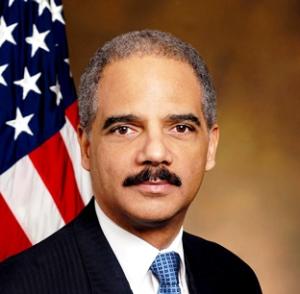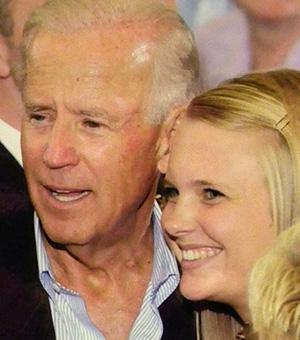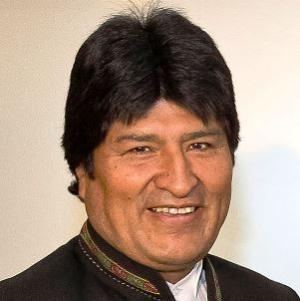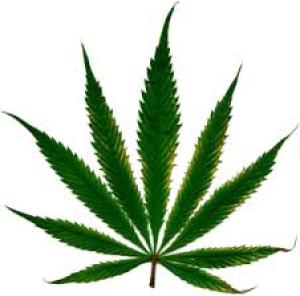Whew, what a year! Two more states legalize it -- and DC, too -- decriminalization spreads, and more. But it wasn't all good news. Here's our domestic Top 10 drug policy stories.
With the holiday party season approaching, it's time to look twice at those pills. But harm reduction also extends to changing public policies that make things worse.
Another medical organization calls for rescheduling, a California court rules that concentrates are medicine, Colorado starts handing out medical marijuana research money, and more.
For the second time in the past eight days, an Indiana man is dead after a drug-related police pursuit.
Ho, ho, ho. We have a Christmas stocking full of corrupt cops this week.
Colorado's conservative neighbors try to undo its marijuana legalization, Philadelphia drops a pair of high-profile asset forfeiture cases, Obama commutes sentences for eight drug offenders, and more.
New York officials have released draft medical marijuana regs, and advocates aren't too impressed, Lebanon's agriculture minister says it's time to legalize it, Bolivia's president criticizes Mexico's drug war, "Baby Bou Bou" has a million-dollar medical bill, and more.
Cuomo rejects legalization, Christie talks treatment instead of prison, New Hampshire takes a step toward getting dispensaries going, Lebanon's hash trade is booming, and more.
Decrim comes to the US Virgin Islands, Anchorage starts planning for pot, California starts looking toward 2016, it was a good year for hemp, the New Jersey Supreme Court rejects criminalizing a pregnant woman for using prescribed methadone, and more.
Whew, what a year! Two more states legalize it -- and DC, too -- decriminalization spreads, and more. But it wasn't all good news. Here's our Top 10:
1. Marijuana Legalization Wins at the Polls in Alaska, Oregon, and DC. In an Election Day clean sweep, voters in Alaska, Oregon, and Washington, DC, delivered a marijuana legalization
trifecta. Legalization won with 53% of the vote in Alaska, 55% in Oregon, and a whopping 69% in Washington, DC, the highest percentage vote for legalization ever recorded. With victory in Oregon this year, every state that has had the chance to vote for legalization since 2012 has now done so.
2. The Sky Hasn't Fallen in Colorado and Washington. It's now been two years since the first two states to legalize marijuana did so, and the predicted horrible consequences have not materialized. While possession became legal almost immediately, legal sales commenced in January in Colorado and in July in Washington. Teen pot smoking declined this year, according to the annual Monitoring the Future survey, and Colorado teens in particular were consuming less weed, according to the state Department of Public Health and Environment. Neither have traffic fatalities increased, according to The Washington Post. Nor has crime increased. What has increased is state revenues from the taxation of marijuana, from zero before legalization to tens of millions of dollars annually now.
3. Big Eastern Cities Decriminalize Pot Possession. The city councils in Philadelphia and Washington, DC, this year approved the decriminalization of small-time pot possession. Although New York state decriminalized in 1978, New York City had been the marijuana arrest capital of the world, thanks to NYPD's habit of stopping people, telling them to empty their pockets, and then charging them with the misdemeanor office of public possession instead of the civil infraction. Now, thanks to Mayor Bill de Blasio, New York cops can't do that anymore. And let's not forget Baltimore; the state of Maryland decriminalized this year, too.

Phillip Seymour Hoffman's death by heroin overdose crystallized concerns over abuse of opiates. (wikimedia.org)
. The February overdose death of the acclaimed actor turned a glaring spotlight on the issues of heroin and prescription pain pill addiction and overdoses. Ever since, government at the federal, state, and local level has been moved by the urge to "Do something!" And it has -- with responses covering the gamut from harm reduction measures like 911 Good Samaritan laws and increased access to overdose reversal drugs to calls for more drug treatment to more-of-the-same drug war approaches and calls for more money for law enforcement.
5. California Defelonizes Drug Possession. With one fell swoop, California voters struck a big blow against mass incarceration when they approved Proposition 47
in November. The initiative makes drug possession and five other low-level, nonviolent offenses misdemeanors instead of felonies. It becomes the 14th state to do so, and by far the largest.
6. Congress Tells the Justice Department to Butt Out of Medical Marijuana States. In passing the omnibus spending bill last week, Congress approved an historic amendment barring the Justice Department from spending taxpayer funds to go after medical marijuana in states where it is legal. Passage does not promise an end to all federal interference -- it doesn't address taxing issues, for instance -- and it is only for this fiscal year, but this is still a landmark vote.

Attorney General Holder has striven to reduce overincarceration of drug offenders. (usdoj.gov)
. Florida should have been the first Southern state to approve medical marijuana, and 57% of Florida voters agreed in November. But because the Florida initiative was a constitutional amendment, it needed 60% of the vote to pass. Even with that high bar, the initiative still could have passed, if not for
some campaign gaffes. Some $5 million worth of contributions to the "no" side by conservative casino magnate Sheldon
Adelson didn't help, either.
8. Medical Marijuana Lite. Maryland passed a medical marijuana law and Minnesota and New York passed limited medical marijuana laws, but this was the year of low-THC, high-CBD medical marijuana laws. Such measures passed in a number of states where full-blown medical marijuana hasn't, including Alabama, Kentucky, North Carolina, and Utah. They typically provide access to high-CBD cannabis oils to a limited number of patients.
9. The Obama Administration Moves to Reduce the Federal Drug War Prison Population. It didn't do it all by itself -- the US Sentencing Commission deserves recognition for proposing sentencing reforms -- but the president and Attorney General Eric Holder spoke our vigorously and repeatedly against mandatory minimums and over-incarceration. It wasn't just talk; the Justice Department instructed US Attorneys to find ways to reduce the use of mandatory minimum sentencing, and exhorted federal drug prisoners to seek clemency.
10. But The Drug War Juggernaut Continues to Roll. Despite all the good news this year, the reality is that we are still nibbling around the edges. While marijuana arrests the previous year were down to just under 700,000 (the historic high was 872,000 in 2008) and overall drug arrests declined by about 50,000, there were still 1.5 million people arrested on drug charges. And the number of people arrested for drugs other than marijuana actually increased.
back to top
[This article was written in partnership with Alternet, and was originally published here.]
With the holiday break coming up soon, millions of young Americans will be looking to party. And tens, perhaps hundreds of thousands of them will be looking to stimulant drugs, especially Ecstasy (MDMA), to help them dance to the throbbing beats far into the night. MDMA is a synthetic stimulant with a chemical structure related to both methamphetamine and mescaline. It's great at providing the energy for partying the night away with a psychedelic tinge. The new scene drug, Molly, is simply Ecstasy in powdered form.
According to the
2013 National Household Survey on Drug Use and Health, some 17 million Americans have taken Ecstasy at least once, more than a half million reported taking it within the past month, and about three-quarters of a million reported taking it for the first time that year. Those monthly-use and first-use figures have been roughly stable for the past few years.
Some of those fun-seekers are going to take too much. And some of them are going to end up ingesting something they thought was Ecstasy, but wasn't. And one or two or three of them might die. Despite breathless media reports, people dying from Ecstasy or from what they thought was Ecstasy or what they thought was a drug like Ecstasy, is not that big a problem, especially compared with the 16,000 or so people who died last year from opiate overdoses. The number of Ecstasy-related deaths each year ranges from the single digits to the low dozens.
Still it is a problem. Any avoidable death is a problem, and those deaths are largely avoidable. They occur because of varying combinations of ignorance, greed and bad public policy. Some people are working to prevent those deaths, and the work extends from the club or rave or festival door to the halls of power in Washington.
The harm reduction group Dance Safe is among those doing that work. The small non-profit offers educational services, encourages people to submit their pills for testing ("drug checking"), and has informational booths at venues that will let them.
Where 20 years ago, the Ecstasy and party drug scene was largely limited to word-of-mouth raves, things have changed, said Dance Safe executive director Missi Wooldridge.
"We've seen a real explosion in the scene that has been transformed from an underground rave culture to a real mainstream electronic dance music culture," she said. "People are likely to experiment with drugs at raves and dances, as well as with friends at parties or night clubs."
They are also likely to be ingesting either adulterated Ecstasy or other new synthetic drugs misleadingly marketed as Ecstasy. That is reflected in reports on drug checking websites such as Pill Reports and Ecstasy Data, as well as drug discussion forums like Bluelight.
Pill Reports warns that Yellow Pacman tablets found earlier this month in Kansas and Texas contain not MDMA but the synthetic methylone, a methcathinone stimulant that is a chemical analog to MDMA, but is not MDMA. And at least two different pills currently being peddled in Canada as Ecstasy are actually methamphetamine.
"A lot of what we're seeing is the new psychoactive substances infiltrating the market and the scene," said Wooldridge. "People can purchase these substances online. I see a lot of positive results for methcathinone, MDPV, methylone, and the like. Similarly, people think they're taking LSD, but it's actual N-Bomb, or maybe ketamine. People operate under misconceptions about what they're taking, and that can be serious because there are lots of differences in things like onset, duration and potency."
Educated, sophisticated drug consumers may take advantage of drug checking services, as well as have advanced understandings of drug potency, duration and the like, but they are a minority. Most people just want to party, and they want to do it with Ecstasy.
"In contrast with some places in Europe, the market for people seeking out new synthetics is very small in the US," said Stefanie Jones, nightlife community engagement manager at the Drug Policy Alliance "But that doesn't mean they're not here. Many of the people buying them are after MDMA, but here in the US, the market is young people, and many are not that well-informed or familiar with notions like drug checking to see what's in that powder. It's largely an uninformed market, so there's a lot of adulteration."
Dance Safe's Wooldridge concurred.

Web sites like Pillreports.com will tell you whether your pills are bunk. Don't eat the Yellow Pacman! It's methylone.
"People are taking these substances unknowingly for the most part, rather than checking them out," the Denver-based activist said. "There is a relatively small segment that is into the experimentation and the understanding, but most users are not that sophisticated and are taking these drugs without really knowing what they are."
When people die, as two people did at New York's massive Electric Zoo festival last year, the pressure is on promoters and club owners
to crack down on drugs, to increase security, even to decrease or do away with harm reduction measures out of fear of appearing to encourage drug use. In large part, that's because of the RAVE Act, a 2003 law sponsored by then Sen. Joe Biden (D-DE) that threatens owners and promoters with possible criminal sanctions for encouraging drug use.
"The RAVE Act is the elephant in the room," said Wooldridge. "Its intent wasn't to harm or prosecute legitimate event producers, but to expand the crack house laws and go after people solely having events for drug use or sales. But there has been an unintended consequence. People in the industry fear that if they attempt to address drug use they'll be help legally liable for overdoses or other emergencies. Their legal teams and insurance companies say to stay clear, turn a blind eye, but that increases the risks. We need to educate the lawyers and insurers on this. Show me a case where an event producer has been prosecuted for doing harm reduction."
"If the law is making owners scared, we should change the law so they are explicitly protected," said Jones. "Put the focus on the health and safety of the patrons. Including harm reduction shouldn't be seen as encouraging drug activity, but as prioritizing health and safety. Changing the law at the federal level would send a message to the industry that harm reduction is valuable and you won't get in trouble, and that could change the landscape of festivals."
One woman is working to do just that. Dede Goldsmith didn't mean to become a reformer, but when her daughter, Shelley, a University of Virginia student, died after taking Ecstasy at Washington, DC electronic music show the same weekend at the Electonic Zoo last year, that's what happened.
She told Vox in an October interview that when one of Shelley's friends told her Shelley had taken Molly, her first response was, "Who is Molly?" In her search for answers, she came to the realization that Molly didn't kill her daughter; federal drug prohibition and policies that discourage education about safe drug use did.
On the anniversary of her daughter's death in August, Goldsmith launched the Amend the RAVE Act campaign. Its goal, Goldsmith says, is "to make EDM festivals and concerts safer for our young people. Specifically, I am asking for language to be added to the law to make it clear that event organizers and venue owners can implement safety measures to reduce the risk of medical emergencies, including those associated with drug use, without fear of prosecution by federal authorities. As the law currently stands, many owners believe that they will be accused of 'maintaining a drug involved premises' under the act if they institute such measures, opening themselves to criminal or civil prosecution."

Irony alert: Shelley Goldsmith meets RAVE Act author Joe Biden a year before she died on Ecstasy. (amendtheraveact.org)
"It's not that producers don't care, it's that they're terrified," said Wooldridge. "Amending the RAVE Act can be a way to organize the community so people don't fear law enforcement if they're addressing drug use. What's more detrimental -- a fatal overdose or having harm reduction teams and medical teams on site?"
"The campaign is just getting underway," said Jones. "They're collecting signatures, and Dede is just having first meetings with legislators to try to get them on board, to try to get some bipartisan support."
In the meantime, other steps can be taken.
"One of the biggest things we can do is to educate with a true public health approach," Wooldridge said. "We need to have honest conversations and we need to implement drug testing; we have to have that opportunity to create an early warning system when these substances begin to appear."
"Education is really, really critical," said Jones. "We need to be able to get real drug education out to young people and meet them where they are. We need to be explicit about what the drugs are, what they look like, what the common dose it. Integrating harm reduction practices into the culture is also really important, and Dance Safe is great at that."
An effective means of tracking new and available drugs, such as a publicly funded, more comprehensive version of the drug checking websites would also be useful. But that requires someone willing to spend the money.
"We don't really have a surveillance system set up to track these new psychoactive substances," Wooldridge complained. "We don't have the public health monitoring. As a nonprofit, we do some of that on a small scale, but we don't have the capacity or the resources to really do the job. What are the priorities and where is the funding to collect the data?"
"Changing policy to allow for drug checking is also an important avenue to pursue," said Jones. "If we're going to be in a world where drugs remain illegal, we will continue to have problems with imitations and new synthetics, with people not knowing what they're getting. That would be the least we can do."
There is one other obvious response.
"It's unrealistic to think we can keep drugs out of clubs and bars and festivals. Trying to do that causes more harm than good," Wooldridge said. "We need to be realistic and recognize drug use first and foremost as a health concern, not a criminal justice issue. These drugs are often being sold as something they're not, and that's because of prohibition and the black market," said Wooldridge. "One obvious option is legalization and regulation. Then you'd have quality control and you wouldn't need all this drug-checking."
But we're not there yet. Until we are, people are going to have to watch out for themselves and for each other. Check those drugs, kids!
back to top
Another medical organization calls for rescheduling, a California court rules that concentrates are medicine, Colorado starts handing out medical marijuana research money, and more. Let's get to it:
NationalLast Wednesday, the American Academy of Neurology called for rescheduling marijuana. In a just-released position statement on the use of medical marijuana for neurological disorders, the academy said it could not yet recommend medical marijuana for those disorders "because further research is needed to determine the benefits and safety of such products." To that end, the academy "requests the reclassification of marijuana-based products from their current Schedule I status so as to improve access for study of marijuana or cannabinoids under IRB-approved research protocols." Click on the link to read the entire position statement.
California
Last Thursday, a state appeals court ruled that cannabis concentrates qualify as medical marijuana. The 3rd District Court of Appeal ruled that "concentrated cannabis" qualifies as marijuana for purposes of medical use. The ruling came in People v. Mulcrevy, in which medical marijuana patients and probationer Sean Patrick Mulcrevy was accused of violating his probation because he was caught in possession of cannabis oil. Concentrated cannabis "is covered by the Compassionate Use Act, and there is insufficient evidence Mulcrevy violated his probation in light of that conclusion," the appeals court held unanimously.
On Tuesday, a Los Angeles judge order Nestdrop to stop making medical marijuana deliveries. Nestdrop, a smart phone app, had been the subject of a complaint by LA City Attorney Mike Feuer, who said it violates a law restricting deliveries in the city. Nestdrop had already quit making deliveries, but now there is a preliminary injunction to prevent it from restarting.
Colorado
Last Wednesday, the Board of Health awarded more than $8 million for medical marijuana research. The awards will allow researchers to investigate marijuana's medical potential, not its downsides, as is required for most federally-approved research on marijuana. Three of the eight studies will still require federal approval and marijuana from the US government. In the other five "observational" studies, subjects will be providing their own marijuana. Researchers will study marijuana's impact on PTSD, irritable bowel syndrome, pain relief for children with brain tumors, pediatric epileptic seizures, and compare it with oxycodone for pain relief.
New Hampshire
Last Friday, the Department of Health and Human Services announced it was taking dispensary applications. It released its request for applications for people who want a shot at operating one of the four "alternative treatment centers" contemplated under the state's medical marijuana laws. The state is divided into four geographic areas; each will be allowed one dispensary.
New York
Last Friday, the Department of Health released draft medical marijuana regulations. The Department of Health released the draft regs, but advocates say they are too tight. "New York will be one of the more restrictive programs in the country, which could inhibit patients from getting the relief they need," the Drug Policy Alliance complained. Click on the title link for details on the draft regs.
[For extensive information about the medical marijuana debate, presented in a neutral format, visitMedicalMarijuana.ProCon.org.]
back to top
A Zionsville, Indiana, man targeted in a meth investigation was shot and killed by state police following a pursuit and stand-off Wednesday night. Brent Kyle Krout, 39, becomes the 39th person to die in US domestic drug law enforcement operations so far this year.
He also becomes the second Indiana drug suspect to die after a police pursuit in the past eight days.According to the Indianapolis Star, citing police sources, Indiana State Police troopers in Owen County attempted to stop Krout Wednesday night because he was the subject of a meth investigation in nearby Lawrence County. Krout refused to stop and led police on a 25-minute chase that only ended when police deployed stop sticks, which caused Krout to lose control of his vehicle.
Police said that throughout the pursuit, Krout could be seen holding a handgun and pointing it at his own head.
Once his vehicle was disabled, Krout remained in it, and police began negotiations with him that went on for four or five hours. At one point, he fired out the front passenger window into a field, but police did not return fire then.
But as a state police SWAT team closed in around dawn, Krout left his vehicle, assumed a defensive stance, and pointed his weapon at officers. Police then opened fire, killing him.
back to top
Ho, ho, ho. We have a Christmas stocking full of corrupt cops this week. Without further ado, let's get to it:
In Brownsville, Texas,
a Customs and Border Protection officer was arrested last Monday on charges he let vehicles full of drugs pass through his port of entry inspection station. Jose Luis
Zavala went down after a van in his lane was randomly chosen for inspection and 3,000 pounds of pot were found inside. He is charged with bribery of a public official and conspiracy to possess with intent to distribute marijuana.
In Atlantic City, New Jersey, a Cumberland County jail guard was arrested last Friday for allegedly smuggling marijuana, tobacco, and vitamin supplements to inmates. Joshua Minguela is accused of smuggling goods between August 2013 and January 2014. He is charged with official misconduct, conspiracy, and drug charges.
In Derry Township, Pennsylvania, a former Derry Township police officer was arrested Monday for stealing prescription drugs from the evidence room. Sgt. Brian Romberger, who was primary evidence custodian at the time, went down after police discovered pills missing from evidence. During an investigation, authorities discovered that Romberger was falling asleep on the job and having other difficulties functioning, and he then admitted he took and consumed the missing pills -- at least 375 of them, including Percocet, oxycodone, hydrocodone, Xanax, Opana, and more. He is charged with theft, tampering with physical evidence, possession of a controlled substance and obtaining a controlled substance by fraud.
In Birmingham, Alabama, a former sheriff's deputy pleaded guilty Monday to pressuring a woman to cook and sell meth for him. Grady Keith Concord, 42, admitted approaching the woman and asking her to make the drug for him. He also supplied her with pseudoephedrine, a key precursor ingredient. He denied threatening to arrest her if she didn't cook for him, but conceded his position as a deputy may have influenced her. He copped to extortion under color of official right, manufacturing methamphetamine and manufacturing and distributing methamphetamine on premises where children are present. No word on sentencing yet.
In Tulsa, Oklahoma, a former Tulsa police officer was sentenced last Wednesday to four years in prison for taking bribes to use police databases to provide information to an informant who used the information to burglarize buildings where large amounts of money was suspected to be. Tyrone Jenkins had pleaded guilty to receiving bribes, two counts of computer crime, and one count of conspiracy to distribute cocaine. The cocaine charge derived from Jenkins's setting up a deal between the informant and another man.
In Albany, New York, a former Saratoga County sheriff's deputy was sentenced last Thursday to five years in federal prison for taking money to drive a drug dealer to Warren County to sell cocaine. Charles Fuller had been arrested last spring, and his defense blamed his behavior on gambling debts and alcohol use. He copped to a single count of conspiracy to possess with intent to distribute cocaine. He went directly from court to prison.
back to top
Colorado's conservative neighbors try to undo its marijuana legalization, Philadelphia drops a pair of high-profile asset forfeiture cases, Obama commutes sentences for eight drug offenders, and more. Let's get to it:
Marijuana PolicyNebraska, Oklahoma Ask Supreme Court to Undo Colorado Legalization. The attorneys general of Nebraska and Oklahoma filed a lawsuit today with the US Supreme Court asking it to declare that Colorado's marijuana legalization violates the Constitution. "Federal law undisputedly prohibits the production and sale of marijuana," Nebraska Attorney General Bruning said. "Colorado has undermined the United States Constitution, and I hope the US Supreme Court will uphold our constitutional principles." But Colorado Attorney General John Suthers, who got a courtesy call from Bruning, scoffed. "We believe this suit is without merit, and we will vigorously defend against it in the US Supreme Court," he said.
New York Lawmakers Hold Hearing on Legalization. State Sens. Liz Krueger (D-Manhattan) and Gustavo Rivera (D-Bronx) held a hearing Wednesday on a bill that would legalize marijuana in the Empire State. Krueger conceded the legislation was unlikely to pass during the coming legislative session, but said it was important to keep the conversation going.
Medical Marijuana
Colorado Awards $8 Million for Marijuana Research. The Colorado Board of Health awarded more than $8 million for medical marijuana research Wednesday. The awards will allow researchers to investigate marijuana's medical potential, not its downsides, as is required for most federally-approved research on marijuana. Three of the eight studies will still require federal approval and marijuana from the US government. In the other five "observational" studies, subjects will be providing their own marijuana. Researchers will study marijuana's impact on PTSD, irritable bowel syndrome, pain relief for children with brain tumors, pediatric epileptic seizures, and compare it with oxycodone for pain relief.
American Academy of Neurology Calls for Rescheduling Marijuana. In a just-released position statement on the use of medical marijuana for neurological disorders, the academy said it could not yet recommend medical marijuana for those disorders "because further research is needed to determine the benefits and safety of such products." To that end, the academy "requests the reclassification of marijuana-based products from their current Schedule I status so as to improve access for study of marijuana or cannabinoids under IRB-approved research protocols." Click on the link to read the entire position statement.
Asset Forfeiture
Philadelphia Drops Two High Profile Asset Forfeiture Cases. Faced with an ongoing federal class-action lawsuit filed by the Institute for Justice over its brazen asset forfeiture practices, the city of Philadelphia announced today that it is dropping efforts to seize the homes of two families. In one case, the city moved to seize a home after an adult son of the owners was busted for selling heroin; in the other, the city moved to seize a home after the owner's estranged husband was caught selling small amounts of marijuana. Meanwhile, the federal lawsuit continues.
Pardons and Commutations
Obama Issues Commutations for Eight Drug Offenders. President Barack Obama Wednesday commuted the prison sentences of eight drug offenders and issued pardons for 12 other people who had already finished their sentences. The commutations were for people imprisoned for crack cocaine and methamphetamine offenses. No one is walking out of prison today, but all eight had their sentences reduced to lengths that will allow them to walk out at some point in the next year. Among those who got commutations is Sidney Earl Johnson of Mobile, Alabama, who has been serving a life sentence for crack cocaine offenses since 1994. Another is Larry Naylor of Memphis, who has been serving a life sentence for 50 grams of crack since 1997.
Opiates
Senators Send Letter to Officials, Health Groups Urging Stronger Response to Drug Overdoses. Members of the Senate Health, Education, Labor, and Pensions Committee this week urged government officials and health groups to come up with stronger responses to drug overdoses. The call came in a letter to the Department of Health and Human Services, the National Governors' Association, the American Medical Association, and associations of state and local health officials. Click on the link to read the letter.
International
Eleven Dead in Mexico Vigilante Clashes. Mexican "self-defense" vigilante groups in the Western state of Michoacan turned their guns on each other Tuesday, leaving 11 dead. The vigilante groups emerged last year in rural communities to fight the Knights Templar cartel, and in May they accepted an offer to be folded into government security forces. And now they are fighting among themselves.
Bangkok Police Hassling Tourists With Searches, Drug Tests, On-the-Spot Fines. Since the military coup in May, foreign visitors to Thailand are increasingly complaining that police Bangkok are stopping and questioning them, searching their persons and belongings, demanding they submit to drug tests, and handing out on-the-spot fines that must be paid immediately in cash. Most of the harassment is taking place on the city's main thoroughfare, Sukhumvit Road. The British ambassador said last week he had raised the issue with local tourism authorities.
back to top
New York officials have released draft medical marijuana regs, and advocates aren't too impressed, Lebanon's agriculture minister says it's time to legalize it, Bolivia's president criticizes Mexico's drug war, "Baby Bou Bou" has a million-dollar medical bill, and more. Let's get to it:

Bolivian President Evo Morales has some choice words about Mexico's "failed" drug policies. (www.wikimedia.org)
Missouri KC NORML Legalization Petition Needs Editing to Get Official Approval. The KC NORML legalization initiative petition is in for a tune-up after the secretary of state's office rejected it for minor stylistic issues, including incorrect underlining and brackets. Organizers say they will rework and resubmit shortly. There's also another Missouri legalization initiative in the works, courtesy of Show Me Cannabis, but the KC NORML initiative is less restrictive, and less restrictive than the legalization schemes in any of the states that have legalized it so far.
Medical Marijuana
New York State Issues Medical Marijuana Regulations; Advocates Not Too Impressed. The Department of Health released draft medical marijuana regulations today, but advocates say they are too tight. "New York will be one of the more restrictive programs in the country, which could inhibit patients from getting the relief they need," the Drug Policy Alliance complained. Click on the title link for details on the draft regs.
Asset Forfeiture
Public Hearing Set for Orange County, NY, Misdemeanor Asset Forfeiture Ordinance. The public will have one last chance to voice objections to a local asset forfeiture already approved on a party-line vote by the county legislature. The ordinance would allow the county to confiscate assets from those convicted of even misdemeanor drug crimes. The ordinance has been criticized by defense attorneys and others not only for the misdemeanor provision, but also because it would allow for civil asset forfeiture without a criminal conviction. A public hearing is set for December 29. Click on the link for meeting details.
Law Enforcement
Family of Infant Burned by Flash-Bang Grenade in Botched Drug Raid Faces A Million Dollar Medical Bill. It has cost a million dollars so far to undo the damage done to toddler Bounkham Phonesavanh when a Georgia SWAT team member tossed a flash-bang grenade into his crib during a drug raid in which the party sought wasn't even there. Habersham County officials have refused to pay the medical bills, and the family has no means of paying them.
International
Lebanese Agriculture Minister Calls for Legalization of Hash Farming. Agriculture Minister Akram Chehayeb called today for the legalization of marijuana so the state can benefit from hash export revenues. "We are conducting studies on [how to] organize this type of agriculture so that it becomes monitored by the state, and thus the state can buy the harvest and export it to the countries that need it," Chehayeb said in a morning interview with a local radio station. "Instead of prosecuting the farmers, let's find other solutions for them," he said. "The planting of cannabis must be organized to benefit the state and the industrial sector, and it is one way of helping the farmers." Lebanese Druze leader Walid Jumblatt made a similar call earlier this week.
Peru Eradicates Record Amount of Coca. Peruvian officials announced today that they eradicated 77,000 acres of coca crops this year, the highest total since eradication programs began in 1983. But they didn't touch the country's largest coca producing area, the valleys of the Apurimac, Ene, and Mantaro rivers (VRAEM) in south-central Peru. The UNODC says Peru is the world's largest coca producer, and the DEA says it is the world's largest cocaine producer.
Bolivian President Criticizes Mexico's "Failed" Drug War Policies. President Evo Morales said Mexico's failed model for fighting the drug war, citing the recent incident where 43 teachers' college students were disappeared and are presumed dead at the hands of corrupt police working with drug gangs. "The market for cocaine is generally in industrialized and developing countries. But… look at what is happening in Colombia, and especially how it is in Mexico," said Morales. "The recent events [in Ayotzinapa-Mexico], I still think that [the forced disappearance of the students] is a failed model, a model of free market that is unfortunately subject to the US. empire. And now there are deep problems. "We do not want to have this kind of problem in Bolivia, of organized crime. It seems that crime groups are above the state. In some regions, not even with the presence of military bases can one fight drug trafficking," he said at a graduation ceremony for National Police cadets.
back to top
Cuomo rejects legalization, Christie talks treatment instead of prison, New Hampshire takes a step toward getting dispensaries going, Lebanon's hash trade is booming, and more. Let's get to it:

In Lebanon, the hash crop grows unimpeded. (cannabisculture.com)
New York Governor Rejects Legalizing Pot, Cites Myth. Gov. Andrew Cuomo (D) Sunday reiterated his opposition to freeing the weed. "I do not favor legalized marijuana," he said in a radio interview. "I do believe it can be a gateway drug." The "gateway theory" is widely considered to be a myth.
South Carolina Decriminalization Bill Pre-Filed. Rep. Mike Pitts (R-Laurens) has pre-filed a bill that would decriminalize marijuana in the Palmetto State. Under the bill, possession of less than an ounce would be a civil infraction with a fine of between $100 and $200 for a first offense. Fines increase with subsequent offenses. The bill is H 3117.
Medical Marijuana
California Appeals Court Rules Concentrates Qualify as Medical Marijuana. The 3rd District Court of Appeal ruled last week that "concentrated cannabis" qualifies as marijuana for purposes of medical use. The ruling came in People v. Mulcrevy, in which medical marijuana patients and probationer Sean Patrick Mulcrevy was accused of violating his probation because he was caught in possession of cannabis oil. Concentrated cannabis "is covered by the Compassionate Use Act, and there is insufficient evidence Mulcrevy violated his probation in light of that conclusion," the appeals court held unanimously.
New Hampshire Now Taking Dispensary Applications. The Department of Health and Human Services Friday released its request for applications for people who want a shot at operating one of the four "alternative treatment centers" contemplated under the state's medical marijuana laws. The state is divided into four geographic areas; each will be allowed one dispensary.
Heroin and Prescription Opiates
Christ Christie: Drug War Has Failed, Treat Addiction as an Illness, Mandatory Treatment Needed. New Jersey Gov. Chris Christie (R) has spoken out again on drug policy, saying the state needs to embrace a dramatically different approach to drug use and addiction. "I think what we've seen over the last 30 years is it just hasn't worked," he said. "And there are some people who make one bad choice to try drugs one time and their particular chemistry leads them to be an addict from the minute they try it. So we need to treat it as a disease. And not having mandatory incarceration for non-violent offenders but having mandatory treatment is something that's going to yield a much greater result for society in general and for those individuals in particular." There's much more at the link.
International
Lebanese Hash Trade Booming in Shadow of Syrian Civil War. Distracted by the civil war next door in Syria, Lebanese security forces have for the past two years refrained from their annual hash eradication campaigns, and now, well-armed leaders of the trade are confident enough to tell troops to stay away if they don't want trouble. "We are selling hashish, and if anyone from the government tries to come close to it, we'll kill them," said Ali Shamas, a spokesman for growers and sellers. "This year we had a good year." Because of oversupply due to lack of eradication, prices have dropped dramatically, but the trade is still lucrative, Shamas said. "All of my main growers made at least half a million dollars this year," he told The Daily Telegraph. Much more at the link.
Brazil Will Study Legalizing High CBD Medical Marijuana. The Brazilian Health Surveillance Agency said Friday it is going to start discussing whether to reclassify the marijuana derivative cannabidiol (CBD). The announcement came one day after several dozen people protested in Brazilia to demand its reclassification and less than a month after the Federal Medical Council authorized neurologists and psychiatrists to prescribe CBD to epileptic children and teens who haven't responded to other treatments.
First Medical Marijuana Trials Get Underway in New South Wales. The state government announced Sunday that it has authorized clinical trials for medical marijuana. Those will be the first ever in Australia. NSW Premier Mike Baird said he expected hundreds of people to take part in the trial, and if it is successful at relieving pain and suffering, the government would consider importing marijuana or allowing it to be grown in the state.
New South Wales Bar Association Law Committee Calls for "Radical Rethink" of Drug Policy. The bar association's Criminal Law Committee is calling for a drug summit that will "radically rethink" Australia's approaches to drug use and the drug trade. The committee said that marijuana decriminalization is a start, but that "this would not remove the black market in drugs or respond to what we had found with respect to other illicit drugs." Instead, the best way to reduce drug- and prohibition-related harms would be "to replace the black market for drugs with a form of legal availability under a highly regulated system."
back to top
Decrim comes to the US Virgin Islands, Anchorage starts planning for pot, California starts looking toward 2016, it was a good year for hemp, the New Jersey Supreme Court rejects criminalizing a pregnant woman for using prescribed methadone, and more. Let's get to it:

California prepares for 2016. (CCPR)
US Virgin Islands Lawmakers Override Veto to Enact Decriminalization. Lawmakers voted Friday to override a line-item veto of a decriminalization provision in the territory's FY 2015 budget. That means the territory has now decriminalized the possession of up to an ounce of marijuana.
Anchorage Forms Committee to Handle Legalization. Last week, the city council shot down a plan to ban pot sales in the state's largest city. This week, it has formed a committee to handle local implementation of legalization. The first meeting is today. Click on the link for more details.
Oakland Meeting Next Month to Look at Lessons of Successful Legalization Campaigns. The California Coalition for Cannabis Policy Reform and its grassroots organizing arm, ReformCA, will be hosting a "debriefing" with leaders of the successful initiative campaigns in Alaska, Oregon, and Washington, DC, next month. The meeting is set for January 9 in Oakland. Click on the link for more details and to RSVP. Seating is limited.
Hemp
A Good Year for Hemp. The industry lobbying group Vote Hemp reports that, largely inspired by passage of American Agricultural Act's provision allowing for hemp research, 10 states legalized hemp production this year. They are Delaware, Hawaii, Illinois, Indiana, Missouri, Nevada, New York, Tennessee, and Utah. Two other states, Connecticut and New Hampshire, passed hemp study bills.
Harm Reduction
Drug Policy Alliance Issues New Guide for Tackling Drug Use at Music Events. The guide, Managing Drug Use at Your Event, is aimed at event producers and focused on improving the health and safety of festival attendees. It is designed to give event producers a harm reduction-based alternative to a police and enforcement-heavy approach. The guide is part of DPA's Music Fan campaign aimed at stimulating discussion about drug use in club and festival setting and promoting policy reforms to improve clubber health and safety.
Pregnancy
New Jersey Supreme Court Rejects Child Abuse Charge Against Pregnant Mom Over Prescribed Methadone Use. The court ruled unanimously Monday that a woman dependent on opioid pain relievers could not be charged with child abuse and neglect for using prescribed methadone during her pregnancy. Her healthy infant was treated for neonatal abstinence syndrome after birth, and the state Division of Child Protection and Permanency used that diagnosis as the basis for charging her with child abuse. The case is Division of Child Protection and Permanency v. Y.N.
International
Uruguay Has Registered 1,200 Marijuana Growers. The head of the National Drugs Board, Julio Calzada, said Monday that there are 1,200 registered marijuana growers. "It is encouraging to have 1,200 growers after three or four months since the law came into effect," Calzada told reporters. He added that about 500 cannabis clubs have registered. Each club can have up to 45 members and grow up to 99 plants.
back to top












